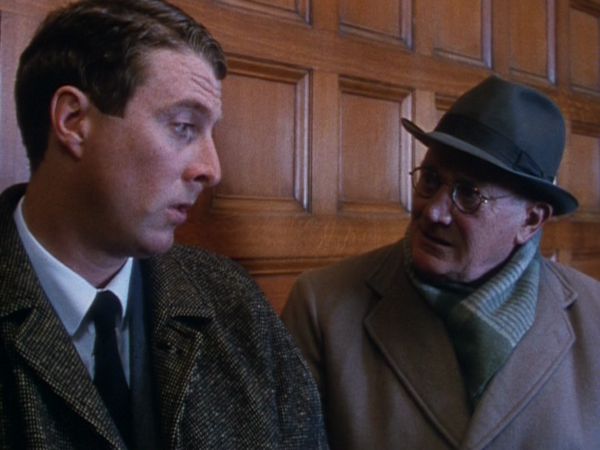Eye For Film >> Movies >> Murder On The Orient Express (2017) Film Review
Murder On The Orient Express
Reviewed by: Amber Wilkinson

Just as a train cannot deviate from its rails, Kenneth Branagh’s latest adaptation of Agatha Christie’s classic sticks to its pre-ordained route, compensating for the familiarity of the journey for many with a sharp injection of pace.
The director also steps into the well-worn shoes of Monsieur Hercule Poirot – previously occupied by heavyweights including Albert Finney, Peter Ustinov and David Suchet. He definitely has the look, the “profusion of his moustaches” more profuse than you might even imagine possible, and has the confidence in his own abilities as an actor to frequently linger on Poirot’s face as he ponders a problem. If Ustinov emphasised the humour of Poirot and Suchet the meticulousness, Branagh manages to bridge the two, while also bringing an unexpected note of soulfulness and melancholy to his performance that marks it out from the others, even if his considerations of ‘his lost Katherine’ are laid on a little too thick.

As a director, Branagh has also put his little grey cells to considerably good work in a bid to free the story from the constraints of the train’s carriages and previous adaptations. The burgeoning cast of characters remain the same, although their ethnic scope has been widened, with Arbuthnot (Sean Connery in the Sidney Lumet adaptation) transformed into a black British doctor (Leslie Odom Jr) and a Hispanic element added via Penelope Cruz’s missionary (taking on the Ingrid Bergman role) and the switching out of the Italian Foscarelli (Denis Quilley in 74) for the Mexican Marquez (Manuel Garcia-Rulfo).
Still, the story remains the same, with Johnny Depp taking on the role of the shifty Ratchett – so villainous a villain, he might have escaped from Roger Rabbit’s Toontown. When he is bumped off in the night in what appears to be a frenzied attack, the Belgian sleuth faces a race against time to work out whodunit.
Branagh and cinematographer Haris Zambarloukos help the story to rattle along by keeping the camera on the move, finding unusual angles, such as when Poirot is seen walking the full length of the train, the camera tracking him from the outside as he passes the other passengers, or when Ratchett’s corpse is discovered, it hovers above the action – and refuses to examine the enter the room where the body lies – giving us a shifted perspective. They also make good use of the glass on the train, often showing those giving evidence in multiple reflection, to further underline the Janus-faced nature of the evidence. Less successful are the shots of the train from the outside, which have a whiff of the Uncanny Valley about them, putting me in mind of The Polar Express.
The cast are stellar – including everyone from Judi Dench on ageing princess duty to Josh Gad as the squirrelly MacQueen – but their screen-time is inevitably limited by the convolutions of the plot, so that only Michelle Pfeiffer as the fading sex-bomb widow and Daisy Ridley’s engaging governess make a lasting impression. This, and the decision to play the flashbacks in black and white are something of a drawback. Screenwriter Michael Green has, however, added one or two nice flourishes, including enhancing Poirot's abilities with his cane – he might not quite be up to John Steed's umbrella standards but he's well on the way. When the hint of a sequel is offered at the end, it doesn't seem too much of a crime.
Reviewed on: 03 Nov 2017


















